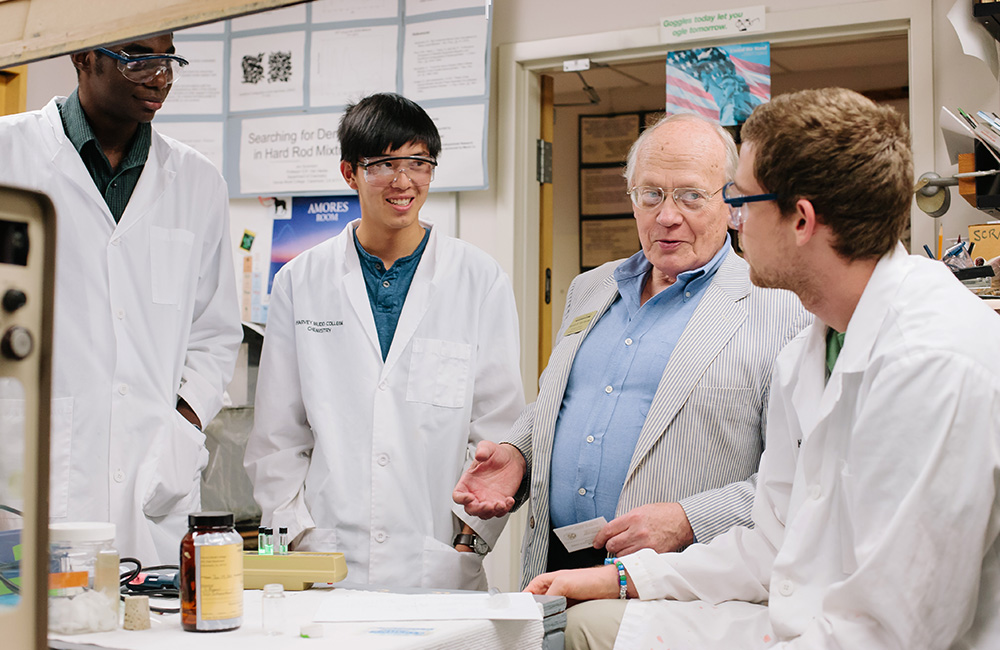Department of Chemistry Receives Second MRI Grant
September 15, 2017
The Harvey Mudd College Department of Chemistry is celebrating the news of a grant for equipment that is considered a fundamental tool in thermal analysis.
The National Science Foundation (NSF) is providing funds to Harvey Mudd College for the acquisition of a Thermal Analysis Model DSC 250 Differential Scanning Calorimeter, an important instrument that provides critical data for research in many disciplines: polymers, liquid crystals, environmental analyses, purity of materials, thermal energy storage, thermal properties of solids and liquids and thermal properties of new materials, for example. Its control system allows temperature scanning measurements from -90 to 550 Centigrade.
The new instrument provides Harvey Mudd researchers with “an improvement in sensitivity—the DSC measures smaller thermal events more accurately—an improvement in ease and speed of data analyses and an improvement in ease of data acquisition,” says Gerald Van Hecke ’61, Donald A. Strauss Professor of Chemistry. The chemistry department is replacing a DSC it purchased in 1995 and will benefit from Van Hecke’s more than 40 years of experience with generations of DSC equipment.
In their proposal, professors Van Hecke, Jim Eckert and Lelia Hawkins outlined five projects that will involve immediate use of the instrument for current long-range research. The instrument will be housed in the Jacobs-Keck Science Center, where all members of the College faculty can access it to characterize research materials mostly through one-time measurements. Faculty from the other Claremont Colleges will also have access, and Harvey Mudd College alumni working in the chemistry departments at Mt. San Antonio and Citrus community colleges will have guest use privileges.
The $84,362 grant, “MRI: Acquisition of a differential scanning calorimeter for undergraduate research and training,” includes funding for onsite training provided by a service engineer for Van Hecke, Eckert and Hawkins, who will then be able to train guest users and oversee their use of the instrument.
This is the second successful MRI proposal for the Department of Chemistry this year; the department also received funding for a new high-field nuclear magnetic resonance spectrometer. Van Hecke notes, “Since a college can only submit at most two MRI proposals per year, to receive funding for the two submitted this year is almost remarkable and speaks to the excellence of HMC’s chemistry program.”
NSF grants are the largest share of external support for faculty research at HMC.
